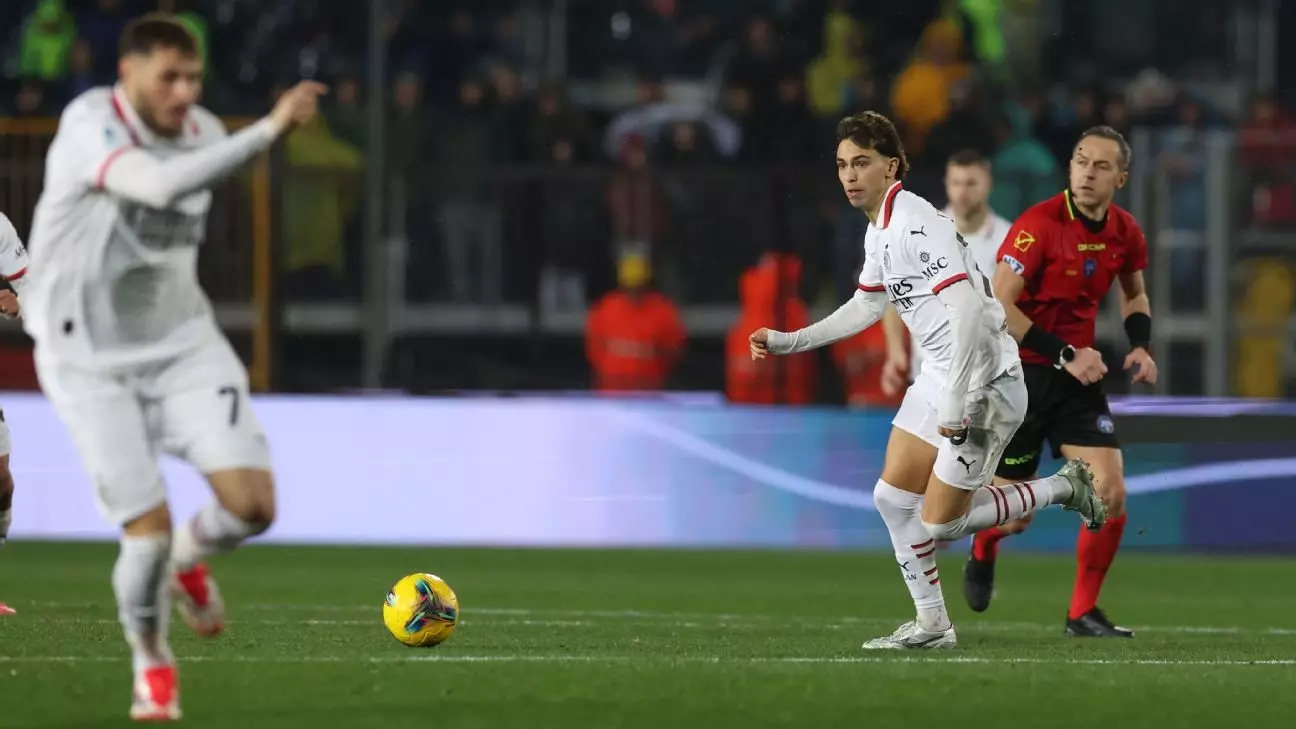Chelsea’s head coach Enzo Maresca has recently spoken on the club’s decision to part ways with forward João Félix, reinforcing a narrative that may raise eyebrows among fans and analysts alike. After the official announcement of Félix’s loan to AC Milan, Maresca stated unequivocally, “I don’t think we miss João.” Such comments stimulate an intriguing discussion regarding the perceived value of players and the broader implications of letting a talent like Félix depart, particularly within the context of Chelsea’s expanding injury list.
Despite the surge in injuries plaguing the club, the head coach’s remarks suggest a calculated dismissal of Félix’s contributions during his time at Stamford Bridge. Maresca’s assertion that the team is not feeling the absence of a player they once invested €50 million in might seem like a knee-jerk reaction, but it indicates deeper sentiments about team dynamics and player performance.
Performance and Potential: A Mixed Bag
João Félix’s journey at Chelsea has been far from stellar. His cumulative statistics reveal a lackluster performance record; with only one goal in 12 appearances, this fleeting stint casts doubt on whether he was ever able to showcase his true capabilities in the Premier League. Even though the club managed to secure his services from Atlético Madrid, he never fully adjusted to the rigors of English football, concluding with just three starts to his name.
This situation naturally invites the question: can a player truly be missed if he fails to establish a substantial footprint on the team? The answer, as evident in Maresca’s comments, seems to be a resounding “no.” Furthermore, the head coach’s remarks about needing to “play a few games without certain players” hint at the potential for team members to step up when opportunities present themselves, emphasizing a philosophy that encourages resilience.
Comparing Leagues: An Italian Resurgence
Félix’s current revitalization in Serie A with AC Milan highlights the stark contrasts between the Premier League’s demanding pace and the tactical nuances of Italian football. His debut with Milan saw him scoring against Roma, showcasing a talent that Chelsea couldn’t seem to harness. The 25-year-old has already shown glimpses of what he can deliver on the pitch, demonstrating that his attributes may be better suited for a league that allows for more strategic play and creativity.
While Chelsea fans might reminisce about his potential, Maresca’s comments underscore the necessity of creating a cohesive team unit over relying on individual talents who struggle to acclimate. His decision to prioritize the collective over individual brilliance could serve as a vital lesson for the coaching staff and fans alike as they navigate through the tumultuous waters of player transfers and performance expectations.
As Chelsea continues its journey through the season amid injury crises, Maresca’s approach may sow seeds of strategic depth within the team. His staunch assertion that they do not miss João Félix could be a reflection of both current circumstances and future aspirations for the squad, prompting a focus on enhancement over nostalgia. Whether or not this will yield desired results remains to be seen, but it exemplifies an understanding that football is ultimately a team sport, where collective effort can often outweigh star power.

